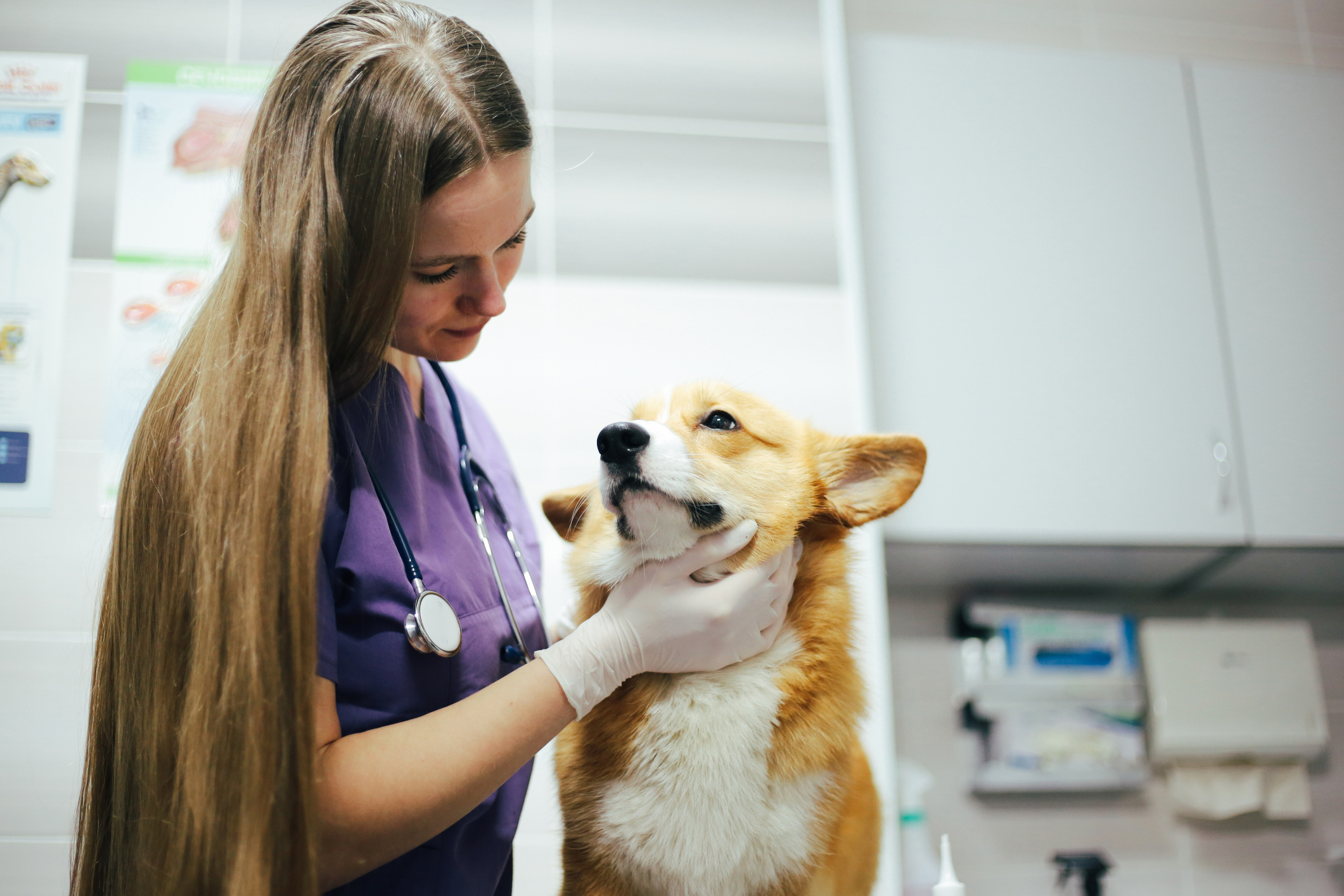Don’t Miss These 5 Warning Signs of Lymphoma in Pets
Doctor of Veterinary Medicine

While efforts are made to answer all questions as quickly as possible, if an immediate answer is required or if your pet is in need of urgent or emergency care, contact your pet's veterinarian immediately.
Doctor of Veterinary Medicine

You will receive an answer from Dr. Lindsay and our vet/tech team as soon as possible, usually the same day.
All answers are provided for informational or educational purposes only, and are intended to be a supplement to, and not a substitute for, the expertise and professional judgment of your pet's veterinarian.
It may be necessary to consult your pet's veterinarian regarding the applicability of any opinions or recommendations with respect to your pet's symptoms or medical condition.
CloseDoctor of Veterinary Medicine

An error has occurred, please reload the page and try again.
CloseDoctor of Veterinary Medicine

While efforts are made to answer all questions as quickly as possible, if an immediate answer is required or if your pet is in need of urgent or emergency care, contact your pet's veterinarian immediately.
There is no answer related to your question

Lymphoma is one of the most common cancers in pets, making up to 20% of new cancer diagnoses in dogs and around 30% of new cancer diagnoses in cats. Though incredibly common, many pet parents are unaware of just how prevalent lymphoma is, and what makes it so different - and dangerous - compared to other cancers.
In honor of National Canine Lymphoma Awareness Day, learn about the most common symptoms of lymphoma in pets and what you can do to help your pet stay healthy.
How Does Lymphoma Affect Dogs and Cats?
Lymphoma is a type of cancer that affects the body’s lymphocytes, a type of white blood cell that helps fight disease. Lymphocytes are produced in the bone marrow and are located in lymph nodes and lymphatic tissue throughout the body.
Lymphoma causes lymphocytes to grow out of control, forming tumors, overcrowding healthy tissue, and eventually compromising organ function anywhere in the body. This is why lymphomas are often more complex than other types of cancers.
According to the Merck Veterinary Manual, in dogs, about 80% of lymphomas are multicentric, meaning affecting every part of the body. Multicentric lymphoma in dogs is comparable to non-Hodgkin’s lymphoma in humans in that it spreads unpredictably. Dogs often develop enlarged lymph nodes caused by tumors.
Most lymphomas diagnosed in cats, and less than 10% in dogs, are of the alimentary type. Alimentary lymphoma effects lymph tissue in the digestive system, and typically causes nonspecific gastric symptoms and eventually organ failure.
As lymph tissue is found throughout the body, any bodily organ can be affected, though other types of lymphoma are less common in pets. Cutaneous lymphoma, which causes skin lesions and ulcers, makes up less than 5 percent of lymphoma cases in dogs and cats.
5 Common Symptoms of Lymphoma in Pets
While lymphoma is common in pets, the early symptoms are often missed or mistaken for other issues. See your veterinarian if you notice even just one of these symptoms in your dog or cat:
- Tumors or swelling. In dogs, lymph node tumors tend to feel hard and rubbery, and may be noticed under the jaw, in the armpits, behind the knees and groin. In cats, tumors of lymphatic tissue within the intestines may be felt in the abdomen.
- Vomiting and diarrhea. Associated with alimentary lymphoma, which affects the digestive system, can also manifest as a decreased appetite and unexplained weight loss.
- Increased thirst and urination. Caused by high calcium levels may indicate that the cancer is affecting lymph tissue within the kidneys.
- Difficulty breathing. Associated with lymphoma of the lymph nodes within the chest cavity.
- Skin lesions which may appear as flaky patches or ulcers, associated with cutaneous lymphoma, which is uncommon in dogs and cats.
These common symptoms of lymphoma are non-specific. Your pet may have swollen lymph nodes if they’re suffering from an infection, or gastric upset after a poor dietary choice. Even so, it’s crucial to take your pet’s symptoms seriously and see your veterinarian as soon as possible for a diagnosis.
How Is Lymphoma Diagnosed in Pets?
Diagnosing lymphoma in pets usually requires a quick, simple test called a fine needle aspirate (FNA). Your veterinarian will use a fine, hollow needle to collect a small sample of the tumor to examine under a microscope for cancerous cells. This test is virtually painless and usually takes just a few minutes.
If your pet is diagnosed with cancer, they will then undergo staging tests to determine how advanced the cancer is, and what treatment options may be available. X-rays, ultrasound imaging, blood chemistry and complete blood count can indicate how far the cancer may have spread and which organs are affected. In the early stages, the cancer may affect just one or a few lymph nodes, while later stages can affect the liver, spleen, bone marrow, or other organ systems.
Lymphoma Treatment for Dogs and Cats
Chemotherapy, which can be administered via IV or an oral medication, is the usual route of treatment for pets with lymphoma. This type of cancer does not usually respond well to surgery and radiation. Side effects of chemotherapy for pets are usually mild.
With chemotherapy, many pets achieve remission for months at a time, but relapse is unfortunately expected in most cases. Palliative care with prednisone can temporarily reduce symptoms when chemotherapy is not possible, extending survival for a few months.
 Swipe
Swipe


















